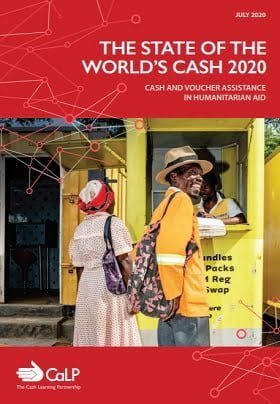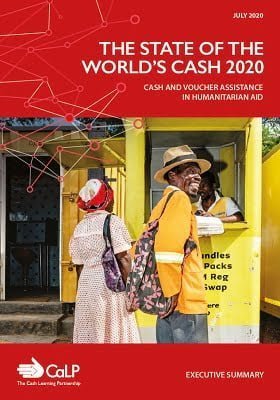State of the World’s Cash 2020 Chapter 4: Build sufficient capacity for Cash and Voucher Assistance
PROGRESS AND CHALLENGES
Individual and organisational CVA capacities have improved, and are having a positive impact on timeliness and scale. Gaps persist that are impacting the quality of CVA and further scale-up.
Capacity building impacts timeliness and scale of CVA.
78% of organisations agree that capacities built so far have allowed them to increase the timeliness of CVA.
80% of organisations agree that capacities built so far have enabled them to increase the scale of CVA.
![]()
Recruiting and retaining skilled staff remains a challenge, particularly as demand for specialised CVA skills increases.
![]() Organisations are building their “cash readiness” but progress is uneven across different staff profiles, organisations,
Organisations are building their “cash readiness” but progress is uneven across different staff profiles, organisations,
and contexts.
![]() There is need to think about the capacity of the CVA system as a whole and increase investment in local systems and stakeholders.
There is need to think about the capacity of the CVA system as a whole and increase investment in local systems and stakeholders.
![]() Dedicated funding for CVA capacity development is generally limited, insufficient and unpredictable for most organisations – national and international.
Dedicated funding for CVA capacity development is generally limited, insufficient and unpredictable for most organisations – national and international.

EVOLVING CAPACITY DEVELOPMENT NEEDS
![]() There is demand for new, specialized, skills and profiles. This is creating new capacity gaps in relation to: technology, data systems and digitisation of CVA; social protection; accountability and recipient perspectives; relationship management, communication, and coordination.
There is demand for new, specialized, skills and profiles. This is creating new capacity gaps in relation to: technology, data systems and digitisation of CVA; social protection; accountability and recipient perspectives; relationship management, communication, and coordination.
![]() The availability of, and access to, capacity building opportunities has increased, but more work is needed to ensure opportunities are accessible to all organisations. Training materials need to be adapted to different operational contexts, be available in different languages and online training needs to be strengthened.
The availability of, and access to, capacity building opportunities has increased, but more work is needed to ensure opportunities are accessible to all organisations. Training materials need to be adapted to different operational contexts, be available in different languages and online training needs to be strengthened.
PRIORITY ACTIONS
- All humanitarian actors should consider how their capacity development efforts can benefit others, not just themselves. A stronger system will enable sustainable progress in terms of scale, quality, and inclusion.
- Donors should systematically fund capacity development processes based on clearly identified needs of individual organisations and shared needs.
- Donors, international and local organisations should invest in national cash readiness based on local actors’ needs and priorities.
- Humanitarian organisations should develop more responsive and adaptable approaches to capacity building and organisational planning based on changing needs in terms of skillsets and systems.
- Course developers and training providers should adapt trainings to different operational contexts, languages and stakeholders. They should reinforce e-learning and self-paced learning as flexible and accessible approaches.
Project leads
Further reading

The State of the World’s Cash 2020 – Full report
Report
Since the first State of the World’s Cash report we have seen huge developments in cash and voucher assistance (CVA), with a continued increase in scale driving changing roles and partnerships, and a growing emphasis on quality. This new report, State of the World’s Cash 2020, examines progress, changes, and challenges in the use of CVA within the rapidly shifting humanitarian landscape...

The State of the World’s Cash 2020 – Executive summary
Report
The State of the World’s Cash 2020 provides a comprehensive snapshot of cash and voucher assistance (CVA), with significant recommendations for anyone interested in humanitarian action. This report follows on from the first report, a seminal piece, published in 2018. Since then CVA has continued to grow and is now a major part of almost every humanitarian response. The total amount of CVA...



